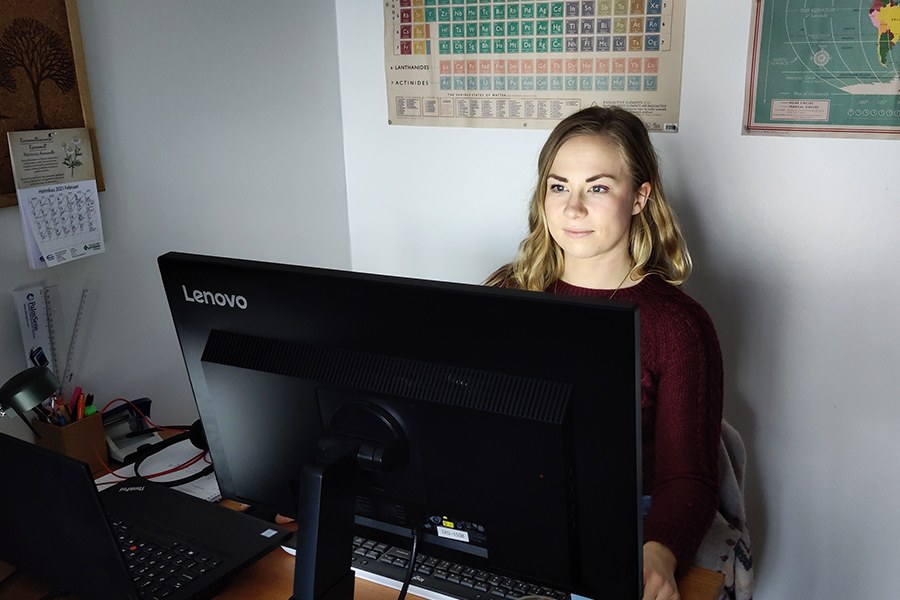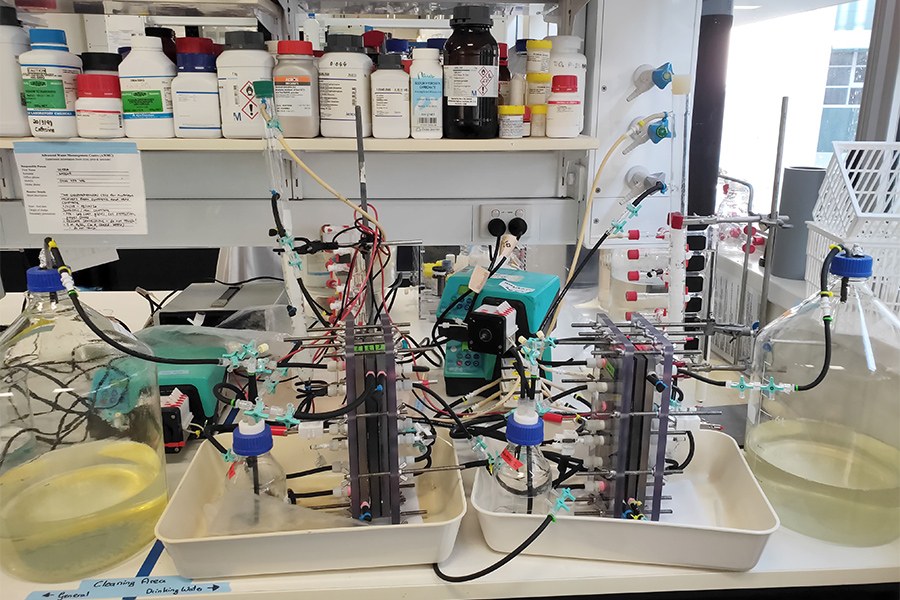Nutrients recovered from wastewater to promote sustainable food production

Veera Koskue, doctoral researcher at Tampere University, is writing a dissertation on nutrient recycling. She is developing a technology for recovering valuable nutrients, such as nitrogen, from domestic wastewater to be used as fertiliser.
The recycling of nutrients will reduce both the energy consumption and environmental impact of fertiliser production. This technology will make food production more sustainable in the future.
“My research results will directly benefit agriculture, as it will be possible to replace industrially produced fertilisers with domestically recycled nutrients and thereby increase self-sufficiency in the agricultural sector. Wastewater treatment plants stand to benefit as well, because the technology holds potential for reducing not only their energy consumption but also the need to use chemical additives,” Veera Koskue says.
Koskue is especially focusing on nitrogen, which is abundantly found in municipal sewage but is rarely utilised.
“Nutrients must be removed from wastewater to protect aquatic ecosystems, but the current technologies do not enable their safe and effective reuse,” Koskue notes.
Circular economy becomes a driving force for sustainable global food production
Problems associated with the global food supply prompted this young scientist to start studying sewage.
“The current world population could not be fed without the use of fertilisers. Still, fertiliser production comes with an environmental cost: the process of manufacturing nitrogen is energy-intensive and generates greenhouse gas emissions. The supply of phosphorus and potassium from mined deposits is limited and non-renewable and expected to run out after a couple of generations,” Koskue says.
“The sustainable option is to reuse existing nutrients instead of producing new ones.”
The nutrient recovery technology studied by Koskue is based on the fact that important nutrients found in wastewater are electrically charged. This means they respond to electric fields and can be recovered with the help of an electric current. The main drawback of the technology is energy consumption, which increases the more nutrients one wants to recover. As the ultimate goal is sustainable production, the source of electricity cannot be ignored.
“We need to find an optimal balance between energy consumption and the efficient recovery of nutrients and also ensure the energy demand is met with renewable resources,” Koskue emphasises.

Further research is needed before recycled fertilisers hit the mainstream
The use of fertilisers is strictly regulated in the EU, and waste-based fertilisers come under close scrutiny. It is possible that Koskue’s recycled fertiliser will at least initially be used to grow non-edible plants.
“Bringing recycled fertilisers into the mainstream of food production is a more long-term goal. It will require further research into the safety of recycled fertilisers and most likely amendments to EU-wide or national legislation,” she points out.
The majority of this research has been carried out by conducting experiments in a laboratory. The results demonstrate that the electrochemical method is capable of recovering up to 90% of the nitrogen found in wastewater. The safety of the nutrient solution is a definite priority.
“I have especially focused on making sure the pharmaceutical residues found in wastewater do not end up in the nutrient solution to be used as fertiliser. The preliminary findings hold great promise in this respect.”

Looking for new and affordable materials
The electrochemical technology for nutrient recovery is yet to be tested on the scale of an entire wastewater treatment plant. According to Koskue, there will be challenges ahead when the full-scale deployment of the technology begins.
“As some of the components are made of valuable metals, they cannot be cost-effectively manufactured on an industrial scale. Researchers around the world are racing to find more affordable alternatives that still deliver similar performance,” Koskue says.
Veera Koskue is part of the Bio and Circular Economy research group in the Faculty of Engineering and Natural Sciences at Tampere University. She has set her sights on completing her doctoral dissertation by the end of 2021. Koskue is collaborating with the University of Queensland, Australia, and her research is funded by the Maj and Tor Nessling Foundation and Tampere University.
Veera Koskue recently won the local qualifying round of the academic Three Minute Thesis (3MT) competition in Tampere. The competition challenges doctoral researchers to describe their research within three minutes to a general audience. Read more about 3MT and watch Veera’s winning pitch on YouTube (link to an external website).
Inquiries:
Veera Koskueveera.koskue [at] tuni.fi ( veera[dot]koskue[at]tuni[dot]fi)
Text: Anna Aatinen





